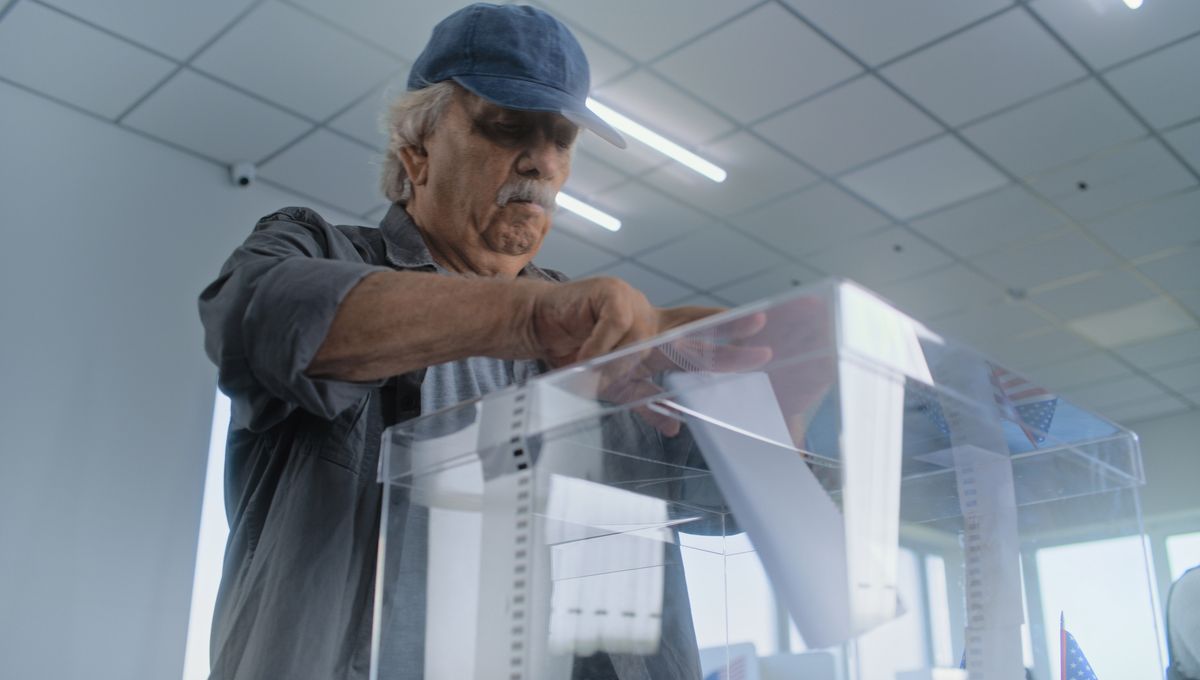
Finns who voted in the 1999 parliamentary elections are more likely to have still been alive in December 2020 than those of similar age who skipped the election. That finding is consistent with previous indicators that voters are usually healthier than non-voters, and the relationship turns out to be even stronger than that with education level. While that may provide another reason to turn up on election day, establishing the reasons for the connection is much more challenging.
A huge surge in turnout was one of the reasons the New York Mayoral election attracted attention worldwide this week, far beyond a typical local ballot. One thing that was probably not on the minds of those who voted for the first time was how it might affect their health, but those who did vote will probably outlive their peers.
Numerous studies have found that voting, including in local elections, correlates with subsequent better health. This has even been recognized in a policy initiative of the American Medical Association encouraging equitable access. A relationship to mortality takes longer to show up, but the unusually thorough databases Nordic nations keep offer an opportunity. Demographers at the University of Helsinki noted that records of who voted in Finland’s 1999 election are still available, as well as details on whether those who stayed in the country have died since.
The authors restricted their research to those aged 30 or over at the time of the election, of whom 72 percent voted. That gave a sample size of 3.19 million. Almost 22 years later, a third of these were dead, and those who hadn’t voted were strongly overrepresented among that number.
There are of course plenty of other factors that contribute to risk of death – age at the start of the study being the most obvious. However, after allowing for age, the risk of death was 73 percent higher for men who didn’t vote in 1999 and 63 percent higher for women non-voters.
In most democracies completion of secondary and tertiary education is associated with increased propensity to vote, and it’s almost always linked to better health. However, that cannot be the sole reason for the relationship – adjusting for education reduced the increased risk for non-voters by only a few percent. Indeed, for someone who hadn’t completed school in ‘99, voting at that election decreased their risk of death more than completing a university degree; it would certainly have been quicker and easier, although not necessarily as enjoyable.
Voting behavior was most predictive among men under 50, and was particularly acute for external causes of death such as accidents or violence.
Of course, it’s extremely unlikely that turning up to vote in that single election was the cause of the increased health. Correlation doesn’t equal causation. Instead, the factors that make a person more likely to vote must strongly overlap with those connected to long life. The importance of the study is in potentially offering clues as to what those overlapping features are, rather than suggesting public health officials should necessarily make boosting turnout a priority.
Some non-voters may have been prevented from participating through illness or disability, each of which would raise their long-term risk. Nevertheless, this probably couldn’t account for a population-wide effect as large as has been measured here.
“Voting, as a form of participation, is a type of social capital, which is linked to health benefits,” the authors write. In addition, voting may increase other forms of civic participation. Health problems and related difficulties in functioning may also negatively affect many important prerequisites of participation, including enhancing resources, motivation to vote and political mobilization,”
Besides being another reason to encourage voting, the authors suggest doctors ask about whether their patients vote, although presumably not who for. “Abandonment of voting habits may be an early signal of significant health decline,” they argue.
As one of the best-functioning democracies on the planet, Finland’s experience may not be universally applicable. Tragically there are places where voting may directly increase the risk of death by violence, at least in the short term, but Finland is definitely not one of them. However, the authors note that previous studies connecting voting behavior to better health include the US as well as across Europe.
Despite all those caveats, the next time you’re feeling unmotivated to vote because the choices seem poor or you doubt the importance of the body being elected, maybe it’s better to be safe than (your loved ones being) sorry.
The study is open access in the Journal of Epidemiology & Community Health.
Source Link: Voters Live Longer, But Does That Mean High Election Turnout Is A Tool For Public Health?